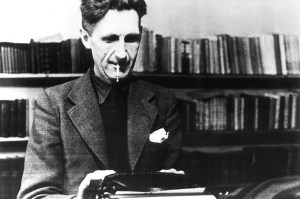Translators are like bumblebees. In 1934, the French entomologist August Magnan pronounced the flight of the bumblebee to be aerodynamically impossible, and though long since scientifically disproved, this factoid is still routinely trotted out. Similar pronouncements about the impossibility of translation have dogged practitioners since Leonardo Bruni’s De interpretatione recta, published in 1424. Meanwhile, bees, unaware of these deliberations, have continued to flit from flower to flower, and translators continue to translate.
As a distinguished translator whose labours have brought English-language readers to works by Marguerite Duras, Gustave Flaubert and the Nobel winner Patrick Modiano, Mark Polizzotti gives short shrift to the idea that translation is impossible, quoting the great David Bellos’s remark: ‘The only impossible things in translation are those that haven’t been done.’ Sympathy for the Traitor approaches the subject from a practical, pragmatic standpoint, one prepared to engage with literary theory and translation theory, but one that recognises that translation — what Wittgenstein dubbed ‘that exact art’ — is neither pure nor exact.
Sympathy for the Traitor takes its title from the Italian traduttore, traditore (translator, traitor), one of many bromides that suggest translation can never truly be faithful. The most famous is Yevgeny Yevtushenko’s quip: ‘Translation is like a woman. If it is beautiful, it is not faithful. If it is faithful, it is most certainly not beautiful.’ Such glib statements may contain a grain of truth, but they posit the notion that linguistic ‘fidelity’ is possible; the stark truth is that it is not.
Language is not merely a set of signifiers and signified; words are part of culture and have both denotations and connotations, and no possible literal translation can communicate such things. Once words begin to be strung together into sentences, a host of other linguistic effects is added: rhythm and cadence, register, dialect, irony, humour and slang (to name only a few) — all the elements that make up what we call an author’s style. Any translator attempting to bring a work of literature into his or her own language must weigh these and many other considerations and find a solution that hews closely to meaning while being true to the author’s style — otherwise, a reader might as well read the Cliff Notes summary.
Polizzotti lucidly and intelligently distils the history of translation and the theories surrounding it, and is unafraid to slaughter some of the sacred cows in the field of translation theory. As a literary translator, his focus is on praxis, and while he is clearly fascinated by Walter Benjamin and Schleiermacher’s theories on ‘genuine’ translation and ‘pure language’, he (justifiably) concludes that in practice, they result in ‘products virtually indistinguishable from merely clunky attempts at English’ of the kind that Mark Twain parodied in his back-translation from the French version of his story ‘The Jumping Frog’:
It there was one time here an individual known under the name of Jim Smiley; it was in the winter ‘49, possibly well at the spring of ’50, I know me recollect not exactly …
Polizzotti favours bold expression; he thrills at the translations of Robert Lowell and Ezra Pound, but is alert to the challenges and the nuanced sensitivities that the discipline requires. He sees translators not as timorous, tinkering wordsmiths, but as international double agents, arguing that
translation and spying are natural bed-fellows: both involve double allegiances, parallel modes of expression, the ability to observe and interpret; to jump, like a seasoned performer, from one role to another…. A translator is a double agent, constantly playing two texts, two languages two texts, two cultures, two readerships off each other in order to arrive at a truth that ultimately serves no master but his own exacting ideal of excellence.
Susan Sontag called translation the ‘circulatory system of the world’s literatures’, which arguably makes translators the beating hearts that propel stories beyond borders and across oceans. Sympathy for the Traitor is a bracing manifesto, a bare-knuckle fight for the importance, for the necessity of literary translation, one that seems to me all the more significant at a time when, in the Anglophone world, through ugly rhetoric or explicit policy, major nations have created a hostile environment that in recent months has led to staff in a Manhattan diner being harangued, and a young woman on the London tube being attacked for the perceived crime of speaking Spanish.
Sympathy for the Traitor is lucid and erudite, but above all it is engaging, entertaining and illuminating and Polizzotti’s manifesto is as exhilarating and invigorating as a lungful of chill, pure air in a classroom grown musty with dogma. He eschews the dour finger-wagging that translation is somehow ‘good for us’, as though it were literary cod-liver oil, and revels instead in those voices that offer ‘a particular delight, an irreplaceable thrill of discovery that is available nowhere else’. As he persuasively argues: ‘If literature in translation is valuable in today’s world, it is because such minds and voices are exceedingly rare, and we cannot afford to be ignorant of a single one of them.’


















